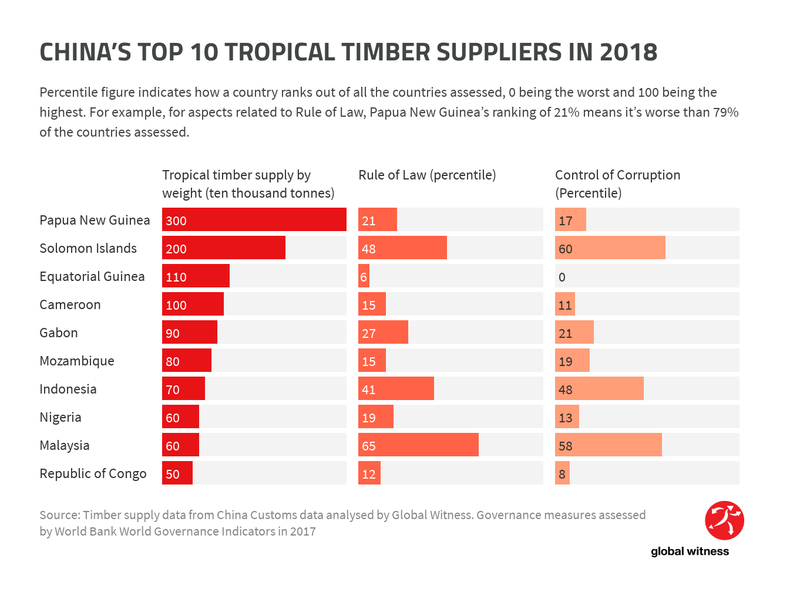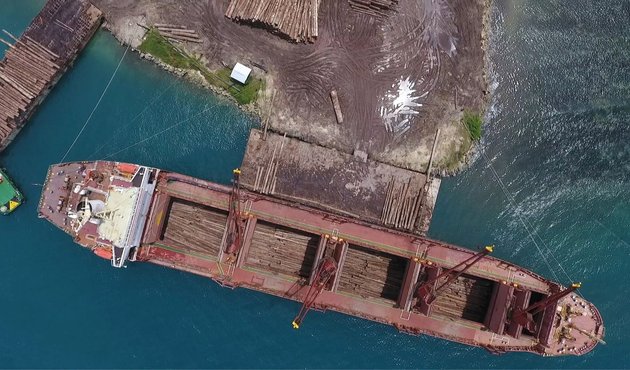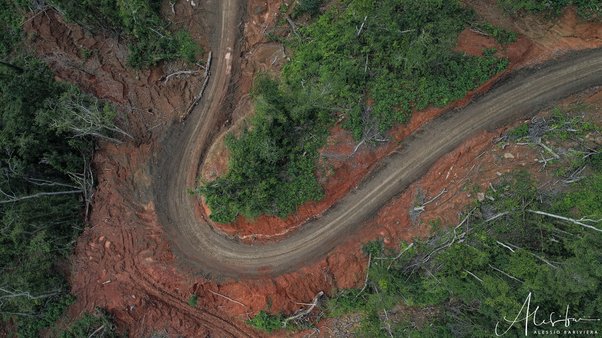Millions of tonnes of timber enters China every year, with its vast wood manufacturing sector dependent on raw materials from overseas. But much of that timber comes from countries where corruption and weak rule of law is leading to high levels of illegal logging.
The country’s exposure to high-risk timber is damaging to its own and its trading partners’ long-term development. It is time for China to take responsibility for this, step up to this global challenge and lead the way on tackling the spread of illegal timber.
Lessons from China’s global forest footprint
Download ResourceWhile China’s leadership has received accolades for a ban on commercial logging in its own natural forest, the country still imports vast amount of wood for manufacturing. Currently, it does not require companies to exclude illegal timber from the wood they import.
That illegal timber doesn’t just get used in the Chinese consumer market. Wood products made in China are also consumed in markets like the EU, where companies could be punished by laws like the EU Timber Regulation for importing illegal wood.
Without Chinese companies carrying out any checks, illegal wood could also be entering global supply chains.
Illegal logging is far from an isolated environmental problem. Instead, it is a global challenge that has direct implications for our ability to fight climate change and biodiversity loss, to promote regional security, to uphold the rights and sustain the livelihoods of often the poorest populations, and to counter deep-rooted corruption.
It is in China’s own interest to develop strategy and policies to manage and improve its overseas footprint, and in particular to mitigate negative social and environmental impacts related to sourcing raw materials.
The Top 10 countries supplying China with timber
Most of the 10 largest suppliers of tropical timber to China rank in the bottom quarter of global ranking on measures of governance.
Not only this, but the research we have compiled shows widespread and worrying levels of illegalities in countries from which China sources over 80% of its tropical timber, as well as in Russia, China’s largest timber supplier globally.
Our new briefing illustrates how China’s exposure to high-risk timber like this can be damaging to its own and its trading partners’ long-term development.

China’s role as a global leader
Extending China’s green development ambition abroad is a logical and beneficial next step for China to take on important leadership in global economic and environmental governance.
Addressing illegal logging and the related timber trade is paramount in China’s pursuit of a sustainable development solution, especially for the developing world.
Recommendations
Global Witness calls on China to:
- Develop national strategy and policies to manage and improve China’s overseas footprint, in particular to mitigate negative social and environmental impacts related to sourcing raw materials. For example, this could include integrating elements into:
- The 14th National Five Year Plan
- The 14th Five Year Ecological and Environmental Protection Plan
- National policies on Green Belt and Road
- National policies on promoting Ecological Civilisation
- National policies related to China’s participation in global governance, such as improving international trade standards and guidance.
- National policies related to Green Supply Chains
- Establish an official working group at the Central Government level to formulate a national policy to address illegal logging, illegal timber trade and deforestation both in and outside China. This working group should facilitate collaboration and coordination, and include officials overseeing forestry, environment, trade, and development.
- Formulate mandatory measures to require all timber importers to carry out due diligence to screen out timber produced in violation of laws in China and source countries.
Lessons from China’s global forest footprint
Download Resource


